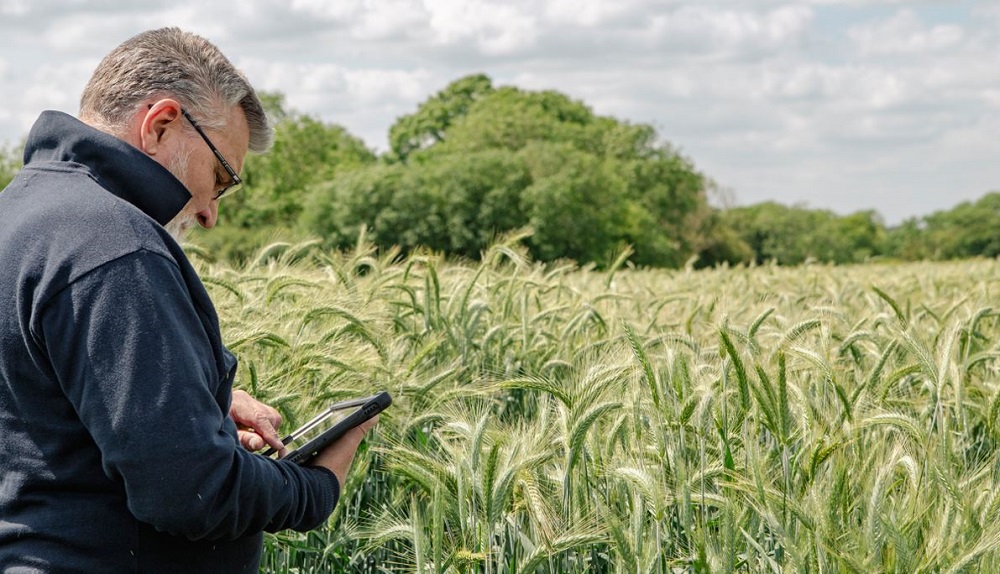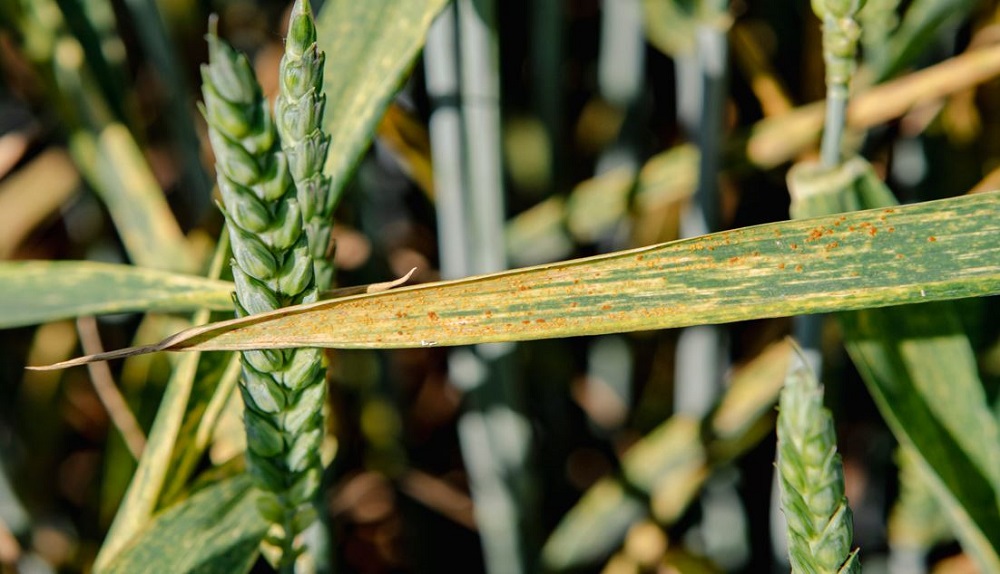- Home
- Knowledge library
- Assessment of young plant resistance to yellow rust in winter wheat (pilot trials)
Assessment of young plant resistance to yellow rust in winter wheat (pilot trials)
Summary
About this project
The pathogen that causes yellow rust – Puccinia striiformis f. sp. tritici – is diverse, with many isolates in the UK population.
Numerous isolates only infect certain varieties. To add further complexity, some winter wheat varieties are susceptible to yellow rust when plants are young but develop some level of resistance after early stem extension (the ‘adult-plant’ stage).
Historically, resistance has been categorised using five pathogen isolates, selected by the UK Cereal Pathogen Virulence Survey (UKCPVS), to best represent the diversity in the yellow rust population at the time of testing.
UKCPVS grows winter wheat varieties (in controlled environment conditions) to assess the seedling reaction to the isolate subset (by scoring plants about 14 days after inoculation).
A variety is classified as susceptible at the young-plant stage if it is susceptible to any one of the isolates.
The AHDB Recommended Lists for cereals and oilseeds 2023/24 (RL) onwards includes information on young plant resistance.
As the isolates chosen for the UKCPVS tests are a subset of the population, actual field performance may vary.
This project will pilot the assessment of young plant resistance in field trials, using yellow rust isolates that are naturally present.
It will include assessments of yellow rust infections as soon as the disease is seen in RL winter wheat trials.
The project will also sow winter wheat varieties in spring 2024, with the aim of having plants at about the 2 to 3 leaf stage about early/mid-June 2024 (to coincide with the typical peak in the yellow rust epidemic).
The pilot will be based on a subset (21) of RL varieties grown in three replicated trials in spring/summer 2024:
- Boghall Farm, Edinburgh (run by SRUC)
- March, Cambridgeshire (run by ADAS Boxworth), which is co-located with a yellow rust inoculated trial
- NIAB Park Farm, Cambridgeshire, which will also be inoculated with characterised yellow rust isolates from the UKCPVS
Findings from the pilot will direct how young plant resistance is measured and reported within the RL.
Interim findings (July 2024)
- Differences in yellow rust between varieties were observed in all three trials
- Yellow rust symptom expression was very dependent on the weather
- One of the trials suffered from poor establishment
Interim findings (September 2024)
The results correlated relatively well with the traditional UKCPVS growth room tests.
KWS Skateum (a candidate in harvest 2023 trials) was an exception, which was resistant in growth room tests in 2023 but not in all the field trials. This result reflects the diverse populations present in the field.
The pilot successfully provided a more real-world appraisal of resistance at the young plant stage, with potential to supplement UKCPVS data.
In 2024, UKCPVS is testing more isolates than usual in the growth room tests to better reflect pathogen diversity. This will provide data for next edition of the RL.
To date, the screens have used 13 isolates, with the results broadly aligning with the 2023 growth room tests (although there are some exceptions).
UKCPVS growth room screening results and young plant field data are available to download.
Final findings (January 2025)
There is no final report for this work.
The main findings were presented at the UK Cereal Pathogen Virulence Survey (UKCPVS) event in January 2025.
Main findings:
- Some varieties resistant in growth room tests were susceptibile in the field
- This result reflects the limited isolate range used in growth room work
- However, most variety classifications were the same between the field and growth room experiments
- Spring sown trials help validate growth room experiments and will now be conducted as part of UKCPVS
- There will be greater emphasis on collecting pre-GS 55 data from RL trials




